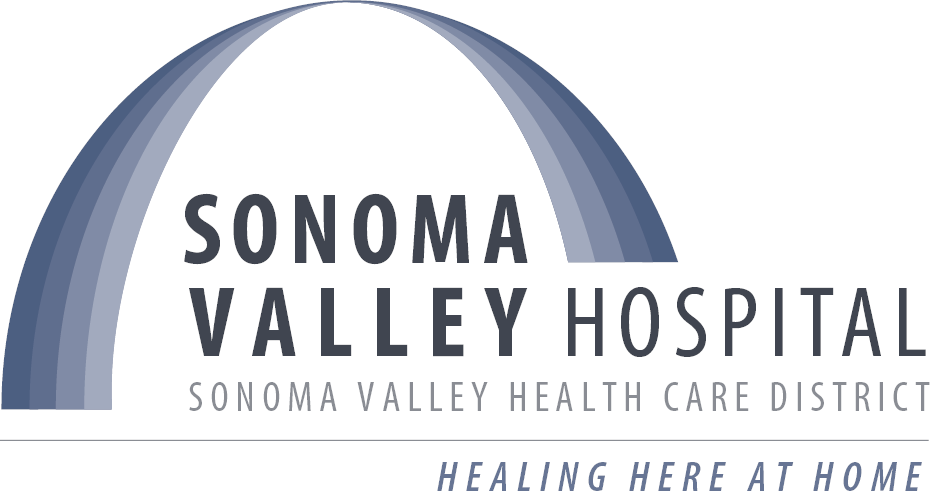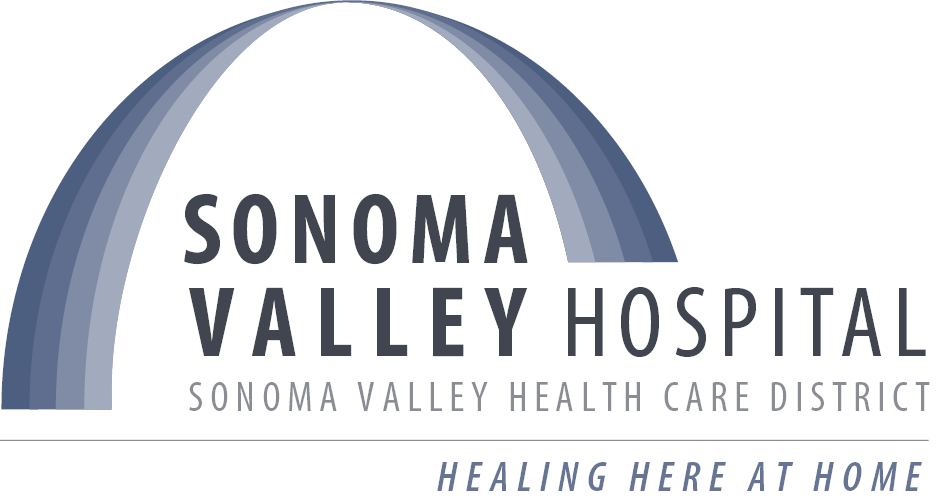Managing Health Conditions During Power Outages, Seasonal Weather and Severe Environmental Disruptions
Air Quality:
Protect your health when air quality is compromised, learn more at the Centers for Disease Control and Prevention’s website: LINK
Data from the Bay Area Air Quality Management District’s (BAAQMD) Sebastopol monitor, which is maintained by air quality experts, is located here: LINK
Local Trending Air Quality – Purple Air LINK
(Note the monitors providing data to this site are not routinely calibrated and air quality experts indicate the data from these monitors “run high.”)
Environmental Protection Agency: LINK (https://www.airnow.gov/)
NOTE (From the County of Sonoma): When checking the Air Quality Index (AQI), please note that federal certified monitors at EPA’s AirNow Fires’ site are most accurate (but have an update lag of 2-3 hours), and that PurpleAir is good for directional trends and changes over time, but is known to overestimate measurements in smoky conditions.
Heat Advisories, Watches, and Warnings:
The National Weather Service issues some or all of the following heat related communications:
- Excessive Heat Warning—Take Action! An Excessive Heat Warning is issued within 12 hours of the onset of extremely dangerous heat conditions. The general rule of thumb for this Warning is when the maximum heat index temperature is expected to be 105° or higher for at least 2 days and night time air temperatures will not drop below 75°; however, these criteria vary across the country, especially for areas not used to extreme heat conditions. If you don’t take precautions immediately when conditions are extreme, you may become seriously ill or even die.
- Excessive Heat Watches—Be Prepared! Heat watches are issued when conditions are favorable for an excessive heat event in the next 24 to 72 hours. A Watch is used when the risk of a heat wave has increased but its occurrence and timing is still uncertain.
- Heat Advisory—Take Action! A Heat Advisory is issued within 12 hours of the onset of extremely dangerous heat conditions. The general rule of thumb for this Advisory is when the maximum heat index temperature is expected to be 100° or higher for at least 2 days, and night time air temperatures will not drop below 75°; however, these criteria vary across the country, especially for areas that are not used to dangerous heat conditions. Take precautions to avoid heat illness. If you don’t take precautions, you may become seriously ill or even die.
- Excessive Heat Outlooks—Be Aware! The outlooks are issued when the potential exists for an excessive heat event in the next 3-7 days. An Outlook provides information to those who need considerable lead-time to prepare for the event.
Resources:
National Weather Service LINK
Heat Related Illness and Prevention – Stay Cool, Stay Hydrated, Stay Informed:
Heat-related deaths and illnesses are preventable. Despite this fact, more than 600 people in the United States are killed by extreme heat every year. This website provides helpful tips, information, and resources to help you stay safe in the extreme heat this summer. Here are some resources from the Centers for Disease Control and Prevention to learn:
Extreme Heat English LINK Spanish LINK
Protecting Vulnerable Groups From Extreme Heat English LINK Spanish LINK
Tips For Preventing Heat-Related Illness English LINK Spanish LINK
Frequently Asked Questions English LINK Spanish LINK
Resources:
Centers For Disease Control and Prevention: Natural Disasters and Severe Weather English LINK Spanish LINK
Power Outages: Managing Health Conditions At Home
Planned or unplanned power outages are a reality of modern life.
Prepare for unexpected interruptions by visiting the Sonoma County website www.socoemergency.org or PG&E’s website www.prepareforpowerdown.com for information, ideas, and tips.
Here is basic information related to managing health conditions at home during a power outage:
CPAP/BIPAP use for sleep apnea*
For CPAP and BIPAP users, a power outage may impact your ability to use CPAP or BIPAP to treat your sleep apnea.
What are some options to consider in the event of a power outage?
- Remember that regular usage of CPAP/BIPAP has carry over benefits for a night or 2, by increasing muscle tone in your mouth and throat. Your sleep apnea may not be as severe on a single night without CPAP/BIPAP as it was before you started treatment
- There are a few things you can do to reduce your sleep apnea severity if you find yourself without CPAP/BIPAP:
- Sleep on your side or stomach, but NOT on your back
- Sleep semi-upright (e.g., in a recliner)
- Do not drink alcohol
- Do not smoke tobacco or marijuana
- Do not use narcotic pain medicines or other sedatives
Back up power options in event of a power outage include:
- A generator
- A rechargeable CPAP battery. Available options can be found online, e.g. from CPAP.com
Unfortunately, these items are not covered by your Health insurance and would therefore be an out of pocket expense.
*If you use CPAP, BIPAP or an oxygen concentrator for chronic respiratory failure, and not just CPAP/BIPAP for sleep apnea, planning for power outages by obtaining a generator may be necessary. Please discuss with your Primary care provider or Pulmonologist if you have questions about this.
Refrigerated Medications
Medications that require refrigerator should be kept cold in a power outage.
In the event of a power outage:
- As soon as possible remove the refrigerated medications from the refrigerator.
- Place medications into an ice chest or small cooler packed with ice, cooling bricks or cold packs.
- Avoid freezing the medication by making sure it does not directly touch the ice.
A closed refrigerator will maintain a cool temperature for 2-3 hours.
Hydrate and Relocate
Keep hydrated. If you are unable to manage without power, seek shelter at a community cooling station.
Other information – Sonoma County Emergency provides these tips if your power is out
- Check to see which of your information sources are working (NOAA radio, Internet news sites, alert and warning apps).
- SoCoAlerts will send messages if evacuations are ordered. If you are in a high-risk wildfire area, stay alert – warning devices may not work without power.
- Use your cell phone sparingly to preserve power. Text when possible, in lieu of voice calls. Keep family up to date about how you are doing.
- Keep hydrated and seek out cooling centers if needed.
- Try to keep refrigerator doors closed. Use the most perishable items first. Items which fully thaw (above 40 degrees) must be used within 4 hours or thrown out.
- If you have a generator, be sure to follow safety instructions and use only as needed to save fuel. Always allow the generator to cool completely before refueling.
- If you have relatives or friends in other areas that still have power, take this opportunity to visit them.
- Check on your neighbors and help each other stay safe.
SOURCE: Use with permission by Kaiser Permanente and the Sonoma County Health Care Coalition (2019)
Resources:
SoCo Alert – Sonoma County Alert System
Nixle – Keeps you up-to-date with relevant information from local public safety departments and schools
NOAA – National Oceanic and Atmospheric Administration – weather alerts
Pacific Gas & Electric
Pacific Gas & Electric – Public Safety Port Shutoff Update and Information
PG&E – Potential Public Safety Power Shutoff (PSPS) Outage Maps – (Address-LookUp Map)
City Of Sonoma: Preparing for Extended Power Outages
City Of Sonoma – Extended Power Outage Preparation Update
Know Your Zone: City of Sonoma Evacuation Zone Map and Interactive Map for Sonoma County Evacuation Zones
Media Sources:
- The Press Democrat, Bay Area Newspaper
- 1350 AM: KSRO Radio
- 100.1 FM: KZST Radio
- 89.1 FM: KBBF Radio (Bilingual/Spanish)
- 740 AM and 106.9 FM: KCBS Radio
- KTVU: TV Channel 2
- NBC11: TV Channel 3
- KRON: TV Channel 4
- KPIX: TV Channel 5
- KGO: TV Channel 7
- KSVY 91.3 FM (local news and culture, streaming and radio)
- Sonoma Index-Tribune (online news, local)
- Sonoma Sun (online newspaper, local)
- SVTV (community access television and streaming)
- The Press Democrat (online news, Sonoma County)
- KSRO
- Etc…


